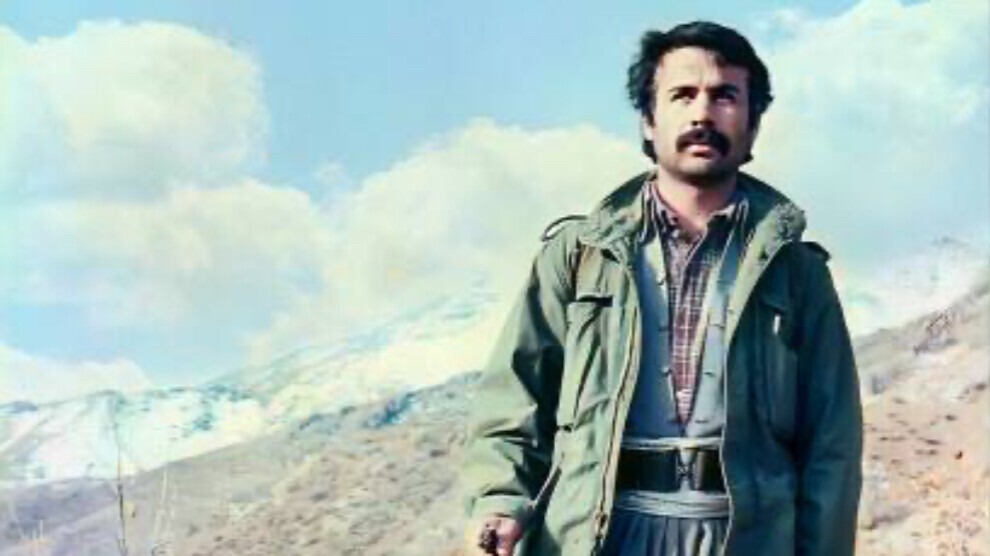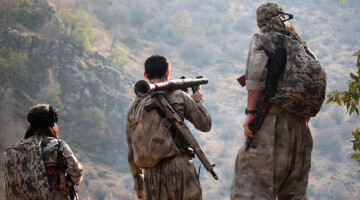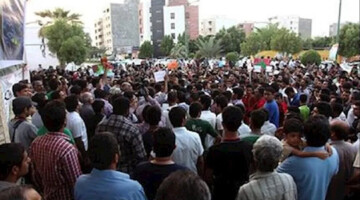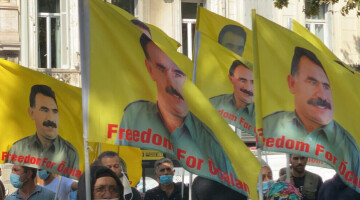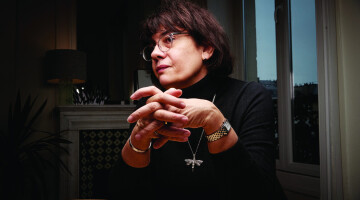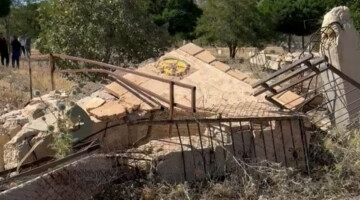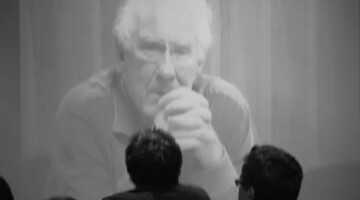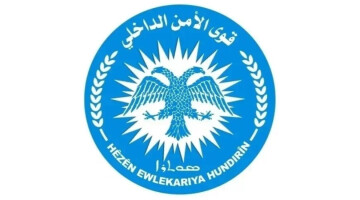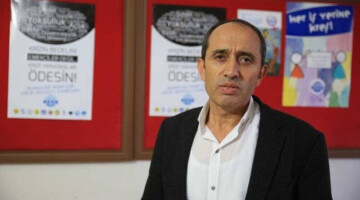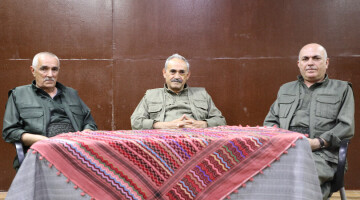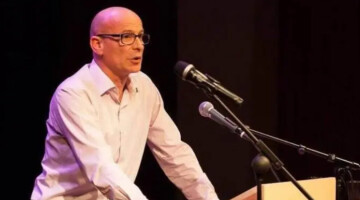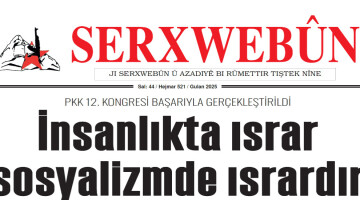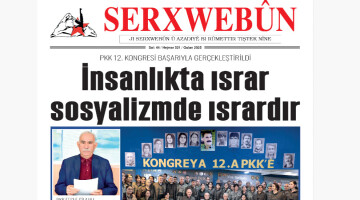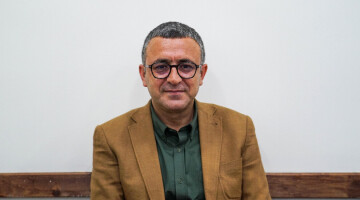On 15 August 1984, the PKK fired “the first shot” in Eruh (Dih) in North Kurdistan. A 36-strong guerrilla force led by the legendary commander Mahsum Korkmaz - also known by his nom de Guerre Egîd ("the Brave") - carried out the first attack against the Turkish occupying forces that day. A military police barracks was selected for the action, which is considered the beginning of the armed struggle of the Kurdish liberation movement. One guard and one officer were killed, and the guerrillas did not suffer any casualties.
The founding declaration of the HRK (Hêzên Rizgarîya Kurdistan) was then read over the loudspeaker of a mosque. In the leaflet of the "Kurdistan Liberation Units", as the guerrillas called themselves in the first years of their resistance in reference to the "Vietnam Liberation Unit" formed at the beginning of the Vietnamese freedom struggle, it said: "The HRK pursues the goal of fighting our people to lead national independence, a democratic society, freedom and unity under the leadership of the PKK, armed against imperialism, Turkish colonial fascism and their native minions."
Step of resurrection to save the Kurds
The date of the PKK's first bullet is considered a turning point in the history of the development of the Kurdish liberation struggle in the 20th century with regard to the national question. The Kurdistan People's Congress (KONGRA GEL) is taking the upcoming anniversary as an opportunity to call to collectively raise resistance against oppression, war and fascism to a new level. In a message, KONGRA-GEL said that 15 August 1984 was a "return to the life of a people brought to the point of annihilation by the genocidal colonial state of Turkey" paved by the guerrilla. This day, the statement added, marked a "step of resurrection to save the Kurds", who as a society have come to the brink of the abyss through the politics of genocide, massacres, assimilation and exile.
The statement continued: “The August 15 offensive is the culmination of the apoistic spirit of sacrifice displayed by Mazlum Doğan, the “Four” [Ferhat Kurtay, Eşref Anyık, Mahmut Zengin and Necmi Öner] and those who resisted the 14 July 1982 death fast in the Amed prison was created against the fascism of the coup regime of 12 September 1980. The guerrillas' attitude of sacrifice spread like wildfire in all parts of Kurdistan and brought down the walls built by the genocidal colonial policy. This spirit has instilled a confidence in our people based on the belief that victory is certain. In this sense, the guerrilla played a strategic role in securing national and social unity.”
The statement said: “The 15 August offensive also marks the beginning of the development of an autonomous women's army and women's party within the Kurdish movement. It is the historic step that set the stage for the women's liberation revolution that is setting the agenda today in Kurdistan, the Middle East and around the world under the slogan ‘Jin, Jiyan, Azadî’. In Zap, Avaşîn and Metîna, this spirit reached a new maximum by unsuccessfully and inconclusively returning the concept of a high-tech warfare, which was the last plan of the fascist Turkish state regime.”
Create conditions for solving the Kurdistan question
KONGRA GEL said that “the spirit of August 15 peaked in Zap, Avaşîn and Metîna, leaving the concept of a technology-based war, which is the final act in the fascist Turkish state's plan of annihilation for now, in a state of inconclusiveness. The current phase thus offers the possibility of creating the conditions for solving the Kurdistan question through our parallel struggles with the building of a democratic nation on the one hand and the revolutionary people's war on the other. To this end, every person who claims to be patriotic and revolutionary should use every effort to overthrow the fascist system politically, militarily and economically. 'What can I do to hasten the economic and moral collapse of fascism?' should be the question we must all ask and to which we must provide practical answers.”
The KDP (Kurdistan Democratic Party) is considered the biggest obstacle in the Kurdish people's struggle for self-determination and freedom, said KONGRA GEL, because they have made it their task to practice “treason” and to collaborate with the Turkish state to stay in power. Whether in politics and economy or in the field of military and educational work - the party is in fact under the total control of Ankara.
With regard to the point where the Kurdish liberation struggle stands today after major obstacles, Turkey would not be able to maintain its hostilities towards the Kurds without the service of the KDP, KONGRA GEL said: "If the Turkish state achieves results in the war against the guerrillas, it will endanger all the achievements of our people. Therefore, no one, especially political parties, civil society organizations and intellectuals, should remain silent in the face of the KDP's betrayal, which works hand in hand with the genocidal Turkish KDP army. Because silence is complicit in betrayal. Strong pressure from the Kurdish public will affect the KDP. We call on everyone to be sensitive to this issue and to advance the resistance in the spirit of the paradigm of a democratic nation, revolutionary people's war and for the freedom of Rêber Apo [Abdullah Öcalan].”
KONGRA GEL
The Kurdistan People's Congress – KONGRA GEL - was founded in November 2003 with the aim of representing the rights of the Kurds more effectively. The organization is committed to peaceful forms of action and strives for a democratic process in the Middle East and the Diaspora. In its program, KONGRA GEL outlaws the use of violence for nationalistic reasons and presents proposals for a non-violent solution that is intended to change the lives of Kurds in the Middle East.

